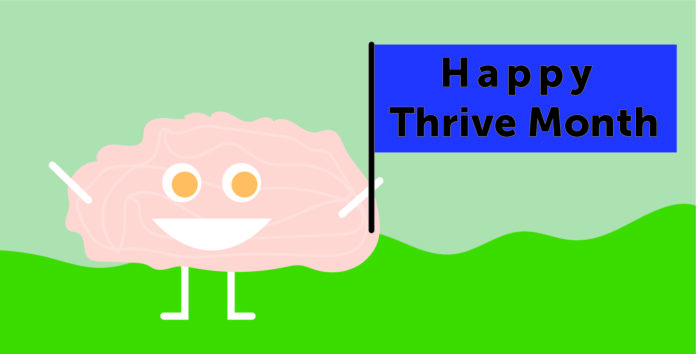Within the past five years, the number of university students suffering from mental health conditions has risen significantly. According to a report from the Council of Ontario Universities, 46 per cent of postsecondary students feel too depressed to fully function and 65 per cent experience overwhelming anxiety. To combat the growing issue of mental health in the university community, the University of Waterloo has launched the Thrive Initiative, running from Oct. 18 to Nov. 12.
The initiative has three main goals: enhancing mental health literacy, building healthy habits and self-care skills and fostering a supportive and inclusive community.
“With all of us returning to campuses this term, I know you all have been managing a lot of change, such as adjusting to new ways of learning and working,” said UW president and vice-chancellor Vivek Goel in a video. “Transitions can be difficult, so it’s important to take care of yourself and your mental health.”
Events will be taking place all throughout Thrive Month, including several speaker series, community walks and group activities. Students can attend the “Let’s talk about mental health at the intersection” presentation on Oct. 21, or the “Plan for resilience” talk on Nov. 1.
UW’s second annual Student Mental Health Research Conference will also be held on Nov. 10. The conference aims to share knowledge, connect researchers and promote mental wellness through presentations.
During Thrive Month, the Thrive Creative Showcase will be open for submissions. Students can share pieces of writing, music or art that showcase their wellness journey. Submissions will be shared across social media and in UW’s campus wellness communications.
Students who are interested in helping to support their community can apply to become a Thrive ambassador. Ambassadors act as liaisons between the Thrive Planning Community and the students, spreading awareness about events and taking on leadership roles.
“We can all strengthen our mental health by learning about it, talking about it, and exploring new tools and resources,” Goel said. “Please remember, it is normal to feel stressed, anxious and overwhelmed. If you need help, reach out to your instructors and make use of the resources and services available to you. Please also make sure to check in with yourselves and each other.”






























